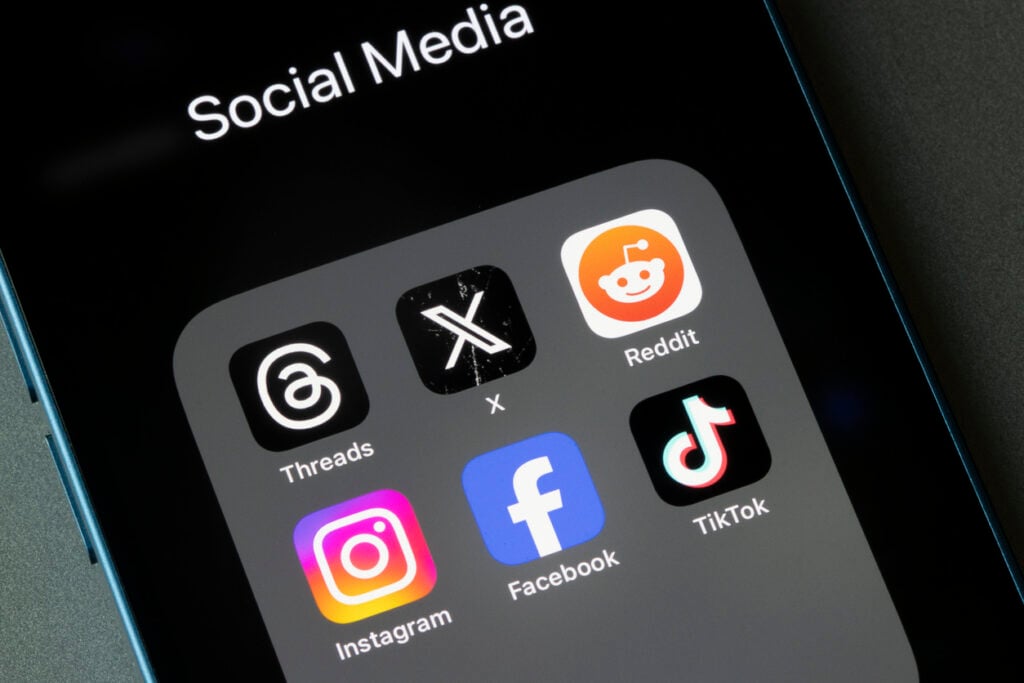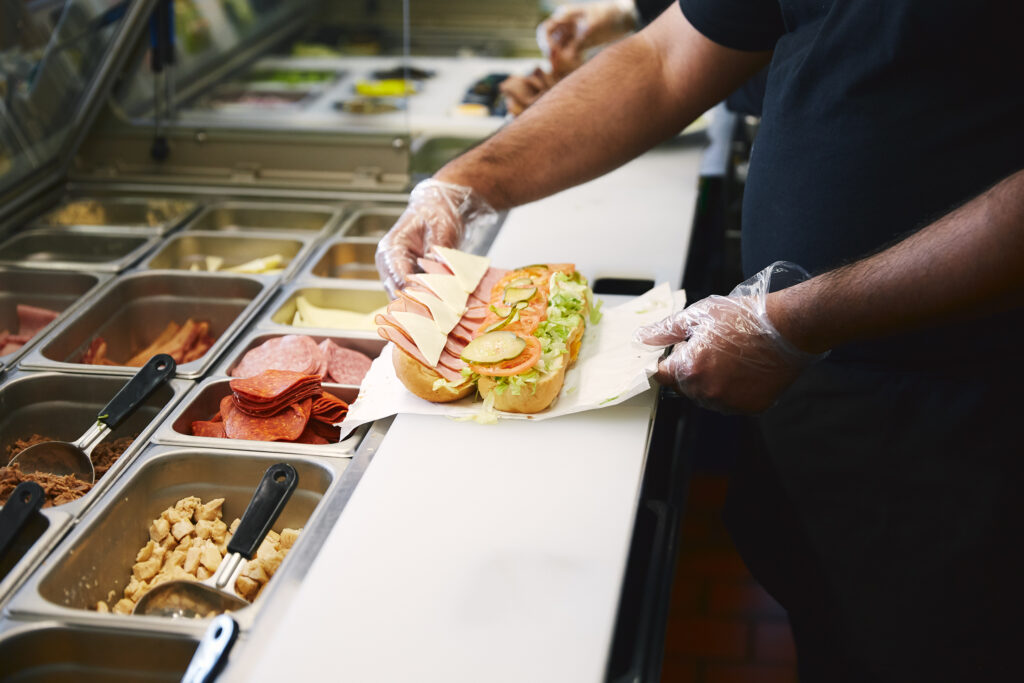The rise of instant culture is turning patience into a relic of the past.

Gen Z doesn’t wait—they don’t have to. Everything they want is a tap away, and the idea of working toward something over time feels almost prehistoric. Convenience has evolved into expectation, and delayed gratification is fading like an outdated trend. Streaming kills the anticipation of a weekly episode, social media delivers dopamine on demand, and same-day delivery eliminates the need to plan ahead. But what’s the cost?
As instant culture shapes Gen Z’s values, long-term rewards are being swapped for short-term hits. Is this progress—or a slow erosion of patience, discipline, and deeper fulfillment?
1. Social media is rewiring the brain for instant validation.

Scrolling through TikTok or Instagram isn’t just a pastime—it’s a dopamine experiment. Every like, comment, and share delivers a microdose of validation, creating an addiction to instant feedback. The concept of waiting for approval is disappearing. Where previous generations worked toward long-term achievements for recognition, Gen Z expects immediate affirmation. This shift is altering how they approach effort and reward, making patience feel unnecessary. The idea of “earning” praise is being replaced by a culture where validation is as easy to get as it is to lose.
This constant stream of digital approval also makes delayed gratification feel frustrating. Traditional paths to success—like mastering a skill over years—seem outdated when social media offers shortcuts to attention, according to Antrepreneur. The danger is that once the instant validation stops, motivation crashes. Instead of cultivating resilience, Gen Z risks becoming reliant on external approval to stay engaged. When every moment is curated for likes, real achievement becomes secondary to visibility. And in a world where online validation can disappear in seconds, what happens to self-worth when the likes stop coming?
2. On-demand entertainment is killing anticipation and patience.

There was a time when watching TV meant waiting a full week for the next episode. Now, entire seasons drop at once, and binge-watching is the norm. Gen Z has grown up in a world where stories unfold at their pace, not the creator’s. This shift isn’t just about convenience—it’s changing how they experience satisfaction. The slow burn of anticipation, the excitement of delayed reward, is disappearing. Instead of savoring moments, they consume and move on, always looking for the next quick hit.
This “now, now, now” mindset spills into other areas of life. Books feel slow when TikTok offers instant summaries. Developing a skill seems tedious when tutorials promise results in minutes, according to Positive Psychology . The expectation for immediate payoff is reshaping how Gen Z approaches effort, making patience feel like an inconvenience.
3. Shopping culture is eliminating the concept of working toward rewards.

Buying something used to mean saving up, planning, and waiting. Now, same-day shipping and buy-now-pay-later options make instant gratification the default. If Gen Z wants something, they don’t have to wait—they can have it now and worry about the cost later. This shift isn’t just changing spending habits; it’s altering the way they view effort and reward. The process of earning before enjoying is being replaced with the expectation of immediate fulfillment.
This mindset affects more than just money. It seeps into career expectations, relationships, and personal goals. Hard work feels unnecessary when there’s always a way to fast-track the process. The erosion of delayed gratification isn’t just about convenience—it’s shaping a generation that struggles with patience, perseverance, and long-term thinking.
4. Fast food and instant delivery are shaping unrealistic expectations for effort.

Cooking a meal used to require planning, preparation, and time. Now, food arrives at the doorstep within minutes, and waiting more than 30 feels unbearable. Gen Z has never known a world where convenience wasn’t king, and this spills into how they approach everything from work to personal growth. When getting what you want is always fast and effortless, patience starts to feel unnecessary.
This expectation extends beyond food. The idea of slow, incremental progress toward a goal feels foreign when every aspect of life is built around speed. Fitness influencers promise rapid body transformations, productivity hacks claim to deliver success overnight, and self-improvement is marketed as something that happens in days, not years. Real growth doesn’t work that way. The more Gen Z relies on instant solutions, the harder it becomes to engage in anything that requires sustained effort.
5. Dating apps are turning relationships into disposable experiences.

Finding a partner used to involve time, effort, and emotional investment. Now, it’s as easy as swiping right. Dating apps have made meeting people incredibly accessible, but they’ve also created a culture where patience and commitment feel optional. If a relationship isn’t immediately perfect, there’s no need to work through challenges—there’s always another option waiting. This mindset fosters a sense of disposability, where relationships are treated as replaceable instead of worth cultivating.
The loss of delayed gratification in dating means fewer people are willing to endure the ups and downs that build deep, lasting connections. The expectation for instant chemistry and flawless compatibility makes real relationships feel like too much work. Instead of learning to navigate differences and grow together, many choose to move on at the first sign of difficulty.
6. Career expectations are shifting toward instant success over long-term growth.

Patience in career-building is becoming a rarity. Gen Z isn’t interested in climbing the corporate ladder slowly—they want remote work, high salaries, and personal fulfillment immediately. The traditional path of starting small and working up feels outdated when influencers and startup founders make success look instant. The idea of paying dues, gaining experience, and slowly building expertise is losing appeal.
This shift creates a disconnect between expectation and reality. When success doesn’t come quickly, frustration and job-hopping follow. Instead of committing to long-term skill development, many search for shortcuts, hoping to bypass the struggle. The issue is that real expertise takes time, and without the ability to endure setbacks and gradual progress, true mastery becomes out of reach.
7. Self-improvement is being replaced by quick-fix solutions.

Self-growth used to mean deep introspection, hard work, and years of effort. Now, it’s marketed as something you can achieve in 30 days or less. Social media is filled with bite-sized wellness advice, promising instant transformation. Instead of committing to the long journey of change, Gen Z is being sold the idea that improvement should be fast and effortless.
The problem is that real self-improvement doesn’t work on a viral trend timeline. Building confidence, healing trauma, and mastering a skill take years, not minutes. But when everything else in life is designed for instant payoff, the patience required for true personal growth feels unnatural. The more Gen Z leans on quick fixes, the harder it becomes to embrace the discomfort and persistence that real change demands.
8. Instant search results are replacing deep thinking and problem-solving.

Critical thinking used to mean wrestling with a problem, researching multiple sources, and analyzing information. Now, a quick Google search or answer engine provides an immediate answer. Gen Z rarely has to sit with uncertainty or work through complex ideas—they can just look up a solution in seconds.
This reliance on instant information discourages deep intellectual engagement. The ability to analyze, question, and synthesize ideas is weakening when the expectation is that answers should be immediate. When problem-solving feels unnecessary, creativity and independent thought start to suffer.
9. Instant gratification is making boredom feel unbearable.

Downtime used to be a natural part of life. Now, every moment is filled with scrolling, streaming, or texting. Gen Z has never had to sit in boredom, and that’s a problem. Boredom fosters creativity, deep thinking, and resilience. Without it, the mind is constantly overstimulated, making it harder to focus and engage deeply in anything.
This constant need for stimulation makes patience feel impossible. If every second can be filled with instant entertainment, why tolerate discomfort or long waits? But real growth often comes from sitting in the discomfort of boredom, pushing through it, and finding something meaningful on the other side.
